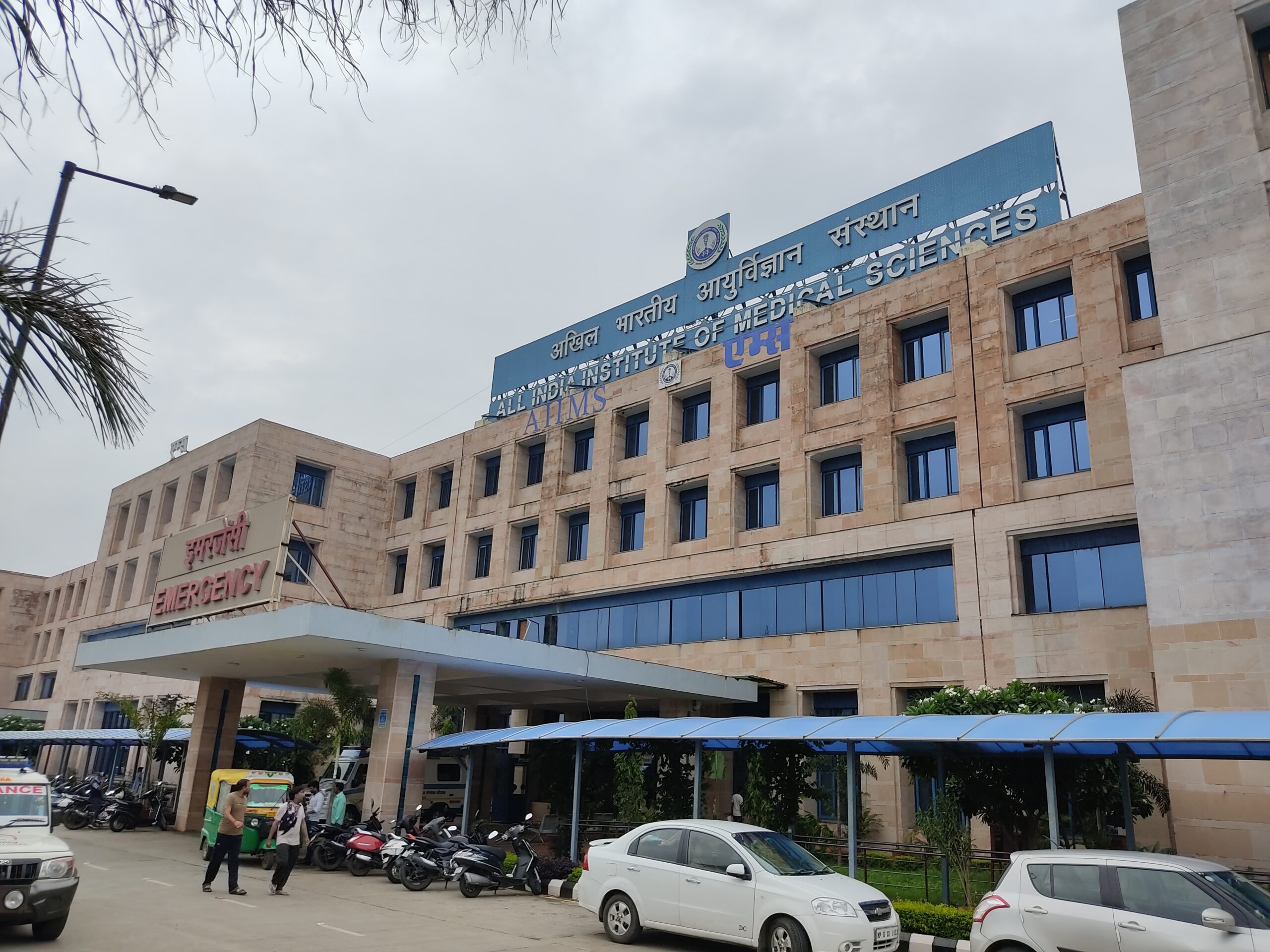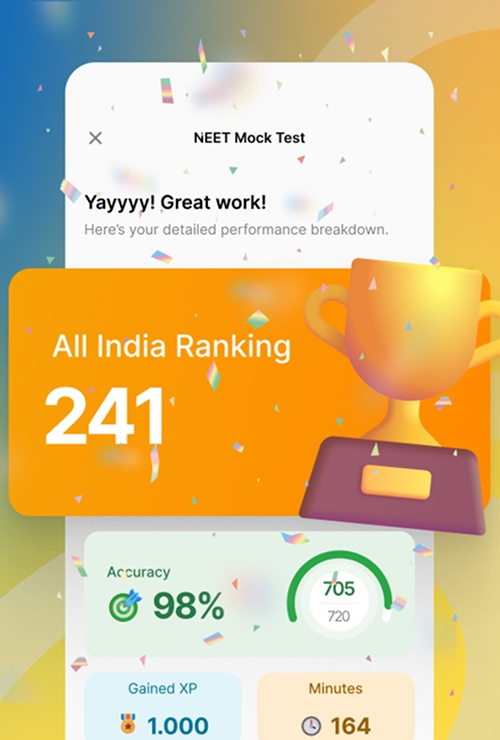
☝️ At a glance
- Homeopathy uses small amounts of natural substances to stimulate the body’s self-healing. It treats the whole person, focusing on overall well-being rather than isolated symptoms.
- Homeopathy courses vary from undergraduate to PhD levels, with durations from 1 hour to 5.5 years and fees ranging from ₹10,000 to ₹11 lacs. Admission is based on entrance exams or merit.
- Careers in homeopathy include roles as doctors, consultants, and researchers. The field is growing, with average salaries between ₹3.5 LPA (lakh per annum) and ₹25 LPA.
- After passing NEET and completing a BHMS program, including an internship, one can practice homeopathy. Advanced specialization options include MD programs.
What is homoeopathy?
Homoeopathy is a complementary or alternative medicine. It is a type of medicine that believes the body can heal itself. Practitioners use very small amounts of natural substances, such as plants and minerals, to help trigger the healing process. Homoeopathy focuses on treating the whole person, not just one part of the body. The medicines used are made entirely from natural sources like plants, vegetables, minerals, or animals. A homoeopathic doctor aims to treat the entire body to promote overall healing.

Become a global doctor with MBBS abroad!
Studying abroad can be affordable and stress-free with futureMBBS:
- World-recognized universities with English-taught programs
- On-site support in partner university cities
- Guaranteed placements & internships for hands-on experience
From selecting universities and supporting you with the application process to orientation and finding accommodation – we are at your side.
Homoeopathy course overview
Here’s a summary of the key details about homoeopathy courses:
Particulars | Details |
Course Levels | UG, PG, PhD, Diploma, Certificate |
Duration | 1 hour - 5.5 years |
Course Fees | ₹10,000 - ₹11,00,000 |
Admission Criteria | Entrance-Based / Merit-Based |
Eligibility Criteria | Class 12 in Science stream with Physics, Chemistry, Biology, and English |
Entrance Exams | UG: NEET |
Popular Colleges | Dr. D.Y. Patil Vidyapeeth, Parul University, Integral University (IUL), Maharashtra University of Health Sciences (MUHS), Guru Nanak University |
Job Profiles | Homoeopathic Doctors, Homoeopathic Consultants, Clinical Researchers, Medical Sales Representatives |
Average Salary | ₹3,50,000 - ₹25,00,000 per annum |
Top Recruiters | Fortis Hospitals, AIIMS, Medanta Hospitals, Shri Ganga Ram Hospital, CIPLA Ltd., Apollo Hospitals |

Study medicine abroad with 100% support!
futureMBBS offers full support to make your dream of studying medicine abroad a reality.
- Hassle-free admission guidance
- Fast-tracked visa processing
- Post-arrival support, including accommodation assistance
Why choose a homeopathy course?
Holistic health: A homeopathy course offers students the opportunity to learn and apply a holistic approach to health, enhancing both personal wellness and professional skills.
Integrative medicine: This course provides additional insights and methods for addressing health challenges in a more comprehensive and integrative way.
Varied career options: Graduates have a wide range of career opportunities, such as private practice, clinical research, education, healthcare consulting, and beyond.
Growing demand: With an increasing interest in natural and alternative medicine, homeopathy professionals are in demand, offering a stable and rewarding career path.
Roles and responsibilities of a homeopathy doctor

Homeopathic doctors practice a non-invasive form of treatment based on the principle of "like cures like," using natural substances in small doses. Their key responsibilities include:
Patient assessment: Conduct thorough consultations to understand the patient's health, lifestyle, and history.
Diagnosis and treatment: Prescribe personalized, mild treatments based on individual symptoms and the disease's history.
Non-invasive approach: Focus on boosting the immune system and treating the root cause without invasive procedures.
Chronic care: Manage chronic conditions that might require surgery in conventional medicine.
Ongoing monitoring: Provide continuous care through regular follow-ups to ensure effective recovery.
How to become a homeopathy doctor in India
There are two main pathways to becoming a homeopathic doctor in India:
Career Path 1:
Complete class 12 with biology.
Pursue a Bachelor of Homeopathic Medicine and Surgery (B.H.M.S) degree (5.6 years).
Optionally, continue with a Doctor of Medicine (M.D.) in homeopathy.
Career Path 2:
Complete class 12 with biology.
Enroll in and complete a Diploma in Homeopathic Medicine and Surgery (D.H.M.S) (4 years).
Eligibility criteria for homeopathy courses
To pursue a homeopathy course, students must meet specific eligibility criteria, which may vary based on the course level and the university. Generally, students should have:
Course Level | Eligibility Criteria |
Undergraduate (UG) | - Passed Class 12 with Physics, Chemistry, Biology, and English. |
Postgraduate (PG) | - Bachelor's degree in Homeopathy from a recognized college or university. |
How to become a homeopathy doctor after 12th?

The first step to becoming a homeopathy doctor is qualifying for the National Eligibility cum Entrance Test (NEET). You need to pass NEET to apply for the Bachelor of Homeopathic Medicine and Surgery (BHMS) course, which is a five-and-a-half-year program, including a mandatory one-year internship. After completing the internship and passing the final exams, students receive their BHMS degree.
NEET UG admission process
NEET is a pen-and-paper exam. Students can apply through the official NEET-UG website, ensuring they meet the eligibility criteria and pay the exam fee online using net banking, debit/credit cards, or UPI.
NEET application fee
Category | Fees |
General | ₹1,600 |
SC/ST | ₹900 |
General-EWS and OBC-NCL | ₹1,500 |
Foreign nationals | ₹8,500 |
BHMS admission process
Once students qualify for NEET, they must register on the Ayush Admissions Central Counselling Committee (AACCC) website for All India Counselling. The admission process includes four rounds:
First round of counselling
Second round of counselling
Seat allotment results
Mop-up round (for any remaining seats)
Homeopathy courses
Homeopathy courses teach students ancient therapeutic methods that promote healing without causing harmful side effects. Below are the details of the various homeopathy courses available:
Homeopathy course levels
Course Level | Description |
Certificate | Various institutes offer certificate courses in Homeopathy, typically lasting 3 to 6 months. |
Diploma | Options include Diploma in Homeopathy, Diploma in Homeopathy and Medicine, and Diploma in Electro Homoeopathy Medicine (DEHM), with durations ranging from 1 to 2 years. |
Bachelor | Undergraduate programs like BHMS (Bachelor of Homeopathic Medicine and Surgery) and BEMS (Bachelor of Electro Homeopathy Medicine) last between 3 to 5 years. |
Master | Postgraduate options include MD in Homeopathic Pharmacy, MD in the Practice of Medicine, and MD in Homeopathic Materia Medica, each lasting 3 years. |
Key skills required for homeopathy
Strong understanding of anatomy
Proficiency in physiology
In-depth knowledge of homeopathic remedies and treatments
Analytical skills to understand which questions to ask
Top colleges for homeopathy in India

For Undergraduate studies:
Government Medical College and Hospital (GMCH), Chandigarh
Maharajah's Institute of Medical Sciences (MIMS), Vizianagaram
Baba Farid University of Health Sciences (BFUHS), Faridkot
Maharashtra University of Health Sciences (MUHS), Nashik
Nehru Homeopathic Medical College & Hospital, New Delhi
Guru Gobind Singh Indraprastha University (GGSIPU), New Delhi
Bharati Vidyapeeth Deemed University (BVDU), Pune
Madhav University (MU), Sirohi
Ayush and Health Science University (AHSU), Raipur
Kerala University of Health Sciences (KUHS), Thrissur
For Postgraduate studies:
Calicut University, Calicut
Hemchandracharya North Gujarat University (HNGU), Patan
Tantia University, Sriganganagar
DKMM Homoeopathic Medical College & Hospital, Aurangabad
Motiwala Homoeopathic Medical College, Nashik
Sarvepalli Radhakrishnan University (SRK), Bhopal
Dr. J.J. Magdum Homoeopathic Medical College, Kolhapur
Foster Development Homoeopathic Medical College and Hospital, Aurangabad
Smt Kanchanbai Babulalji Abad Homoeopathic Medical College, Nashik
SMFRI's Vamanrao Ithape Homeopathic Medical College & Hospital, Pune
Homeopathy course syllabus
The homeopathy course covers a wide range of topics, providing both foundational and advanced knowledge in Medicine, Biology, and Physiology. Students also receive practical training in these areas. A one-year internship is mandatory, which must be completed before obtaining the final degree.
Year | Syllabus |
First | - Anatomy, Histology, Embryology |
Second | - Obstetrics and Gynaecology |
Third | - Organon of Medicine |
Fourth | - Organon of Medicine |
Fifth | - One-year Internship |
Advantages of homeopathy
Homeopathy is a medical approach that addresses various conditions such as allergies, migraines, arthritis, irritable bowel syndrome (IBS), colds, nausea, and toothaches. It is not intended for treating life-threatening conditions like cancer or heart disease. Unlike allopathy, which targets specific organs, homeopathy treats the entire body. Here’s how it benefits:
Benefits of homeopathic remedies:
- Safe and Natural: Remedies are non-toxic and made from minimal amounts of natural substances.
- User-Friendly: Administered in easy-to-take forms such as sugar pills, gels, or drops.
Advantages of homeopathic practitioners:
- Personalized Attention: They spend significant time with each patient, providing careful listening and detailed inquiries.
- Holistic Care: Practitioners consider the entire body’s health rather than focusing on isolated symptoms.
- Ongoing Support: They maintain contact with patients post-treatment, offering continued care and follow-up.
What conditions does homeopathy treat?
Homeopathy addresses a broad range of health issues, including chronic conditions such as:
Allergies
Migraines
Depression
Chronic fatigue syndrome
Rheumatoid arthritis
Irritable bowel syndrome
Premenstrual syndrome
It is also effective for minor issues like bruises, scrapes, toothaches, headaches, nausea, coughs, and colds.
Career opportunities in homeopathy
Medical Consultant
Chief Medical Officer
Homeopathic Doctor
Homeopathic Professor
Electro Homeopathy Doctor
Salary and demand for homeopathy doctors
Demand: High demand for homeopathy professionals.
The salary of a consultant homeopathic physician in India varies significantly based on experience, location, reputation, and patient base:
Entry-Level: ₹2.5 - 6 lakhs per annum (LPA)
Mid-Level: ₹6 - 12 LPA
Senior-Level: ₹12 - 25 LPA
Specializations and career paths
After completing a BHMS degree, students can:
Open a private clinic to practice homeopathy.
Work in government institutions as a homeopathic doctor.
Pursue careers as researchers, consultants, or educators in homeopathy.
Seek opportunities in clinics, manufacturing companies, sales, or quality control.
Additionally, graduates can opt to take the NEET PG entrance exam to qualify for an MD in Homeopathy.
Homeopathy course fees
The fees for a BHMS program can vary based on the state and whether the candidate is applying to a private or government college. Here is an overview of the BHMS fee structure:
Description | Fees |
NIH First-Year Fees | ₹35,450 |
NIH Total Fees | ₹1,04,450 |
Average Government College Fees | ₹12,000 - ₹30,000 |
Average Private College Fees | ₹1,50,000 - ₹2,00,000 |
Scholarships
Meritorious students interested in studying BHMS at the National Institute of Homeopathy can apply for scholarships. Here are the eligibility criteria:
- NSDL e-Gov Scholarship Scheme for Students
The qualification criteria for applying are as follows:
If you scored 60% in your 12th standard, you are eligible for ₹30,000. You need to provide:
- Address proof
If your family’s annual income is below ₹5,00,000, you need to submit:
- Identity proof
- 10+2 mark sheet
- Admission confirmation letter
- Latest income slip
- Bank passbook photo
- All India Pre-Medical Scholarship Test
The qualification criteria and application process for the scholarship are as follows:
- If you pass the All India Pre-Medical Scholarship Test:
- Above 90%: Eligible for full tuition fee coverage
- 80-90%: Eligible for tuition fee coverage for one year
- 70-80%: Eligible for a standard laptop
To apply, you need to:
- Register on the AIPMST website
- Upload a photograph and your Aadhar card number
- Pay the application fee: ₹1,275 for General category or ₹1,075 for SC/ST category
Homeopathy course exam preparation
To prepare effectively for the homeopathy course entrance exam, follow these steps:
Understand the syllabus: Review the syllabus to know which topics and subjects you need to focus on.
Create a study schedule: Develop a study plan that allocates time to each subject, ensuring thorough coverage of all material.
Gather study materials: Collect textbooks, notes, and any additional resources provided by your course or instructor.
Engage in active learning: Use techniques like note-taking, highlighting key points, and making flashcards to enhance information retention.
Practice with sample questions: Find practice questions or sample papers to familiarize yourself with the exam format and question types.
Your medical career abroad starts here!
Thinking of pursuing MBBS abroad? Don’t just dream it, do it!
Start your MBBS journey!Frequently asked questions about homeopathy
Why is NEET important?
NEET (National Eligibility Entrance Test) is crucial for gaining admission to BHMS programs. It is administered by the National Testing Agency (NTA) and serves as the qualifying exam.
What is the NEET age limit?
The minimum age for NEET is 17 years. There is no upper age limit for the exam.
What does BHMS stand for in the medical field?
BHMS stands for Bachelor of Homeopathic Medicine and Surgery. It is an undergraduate course focused on homeopathic medicine.
What is the best institute for BHMS?
The National Institute of Homeopathy (NIH) in Kolkata is considered one of the top institutes for BHMS courses.
What is the BHMS fees?
The annual fee for BHMS at the National Institute of Homeopathy is around ₹35,450.







